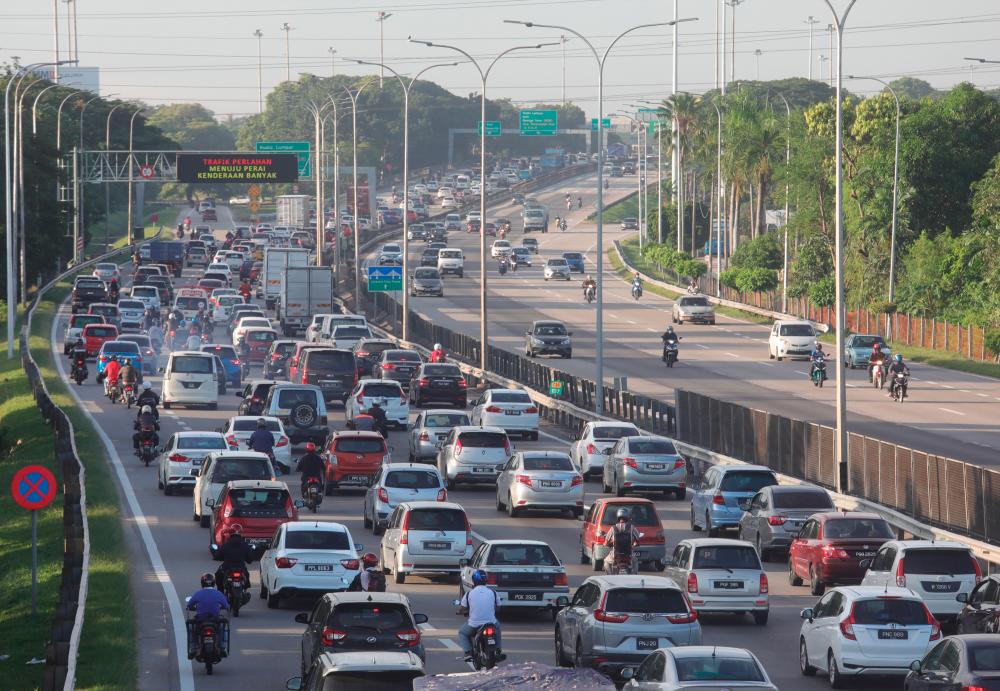PETALING JAYA: Efforts should be made to reduce private vehicle ownership, especially in light of the exemption on vehicle sales tax ending on June 30, said Universiti Utara Malaysia professor of economics Prof Dr K. Kuperan Viswanathan.
He said government earnings from the reimposition of vehicle sales tax, that was suspended during the Covid-19 pandemic, should be used to improve public transport, especially for the B40 and M40 groups who mainly use buses and intercity trains.
On June 20, Finance Minister Tengku Zafrul Abdul Aziz said since the exemption was introduced on June 15, 2020, a total of 868,422 vehicles have been sold, with exemption of sales tax amounting to RM4.7 billion.
“There are too many private vehicles and efforts must be made to discourage car ownership. Doing so will help reduce traffic congestion and air pollution. But the government must also invest in efficient and reliable public transport,” Kuperan said.
“Removing the exemption is a move in the right direction.”
He added that private vehicle prices were already high, and yet people were still buying them.
“High prices are not a deterrent for Malaysians. Most buy private vehicles because public transport is still very poor in terms of being efficient or reliable. Soon, given the low growth in incomes and wages, most young people will not be able to buy cars.
“More old and used cars will be on the roads in the years to come. Our economic growth in the next few years will be less than 5%, making it impossible for many young people to own new cars.”
Kuperan said there was no other viable alternative than to reinvest in public transport infrastructure, while economic planning should be focused on decentralisation of services and industrialisation to disperse the population from major city centres.
Maybank Investment Bank group chief economist, Suhaimi Ilias said it was better to focus on incentivising environmentally-friendly vehicles such as hybrid and electric vehicles, by reviewing the blanket sales tax discounts and fuel subsidies, as well as capital expenditure for related infrastructure such as charging stations.
“Look at proactive policies for the long-term, and not short-term impact or reaction. Otherwise, there is no point in talking about climate change, sustainability and reducing carbon emissions.
“Revenue from the auto industry and fuel subsidy savings must be channelled to improving public transport services and infrastructure,” he said.
However, car salesman Abdul Majid Mohd Ali suggested the government look into giving the exemption to the B40 group and those who have just started working.
“The B40 group sees a car as something that is needed for daily travel. Vehicles below RM50,000 should be exempted from tax since they are buying affordable vehicles to travel to work and for their daily needs. If there is still the need to tax them, maybe the government can consider reducing it just for this group,” he added.













